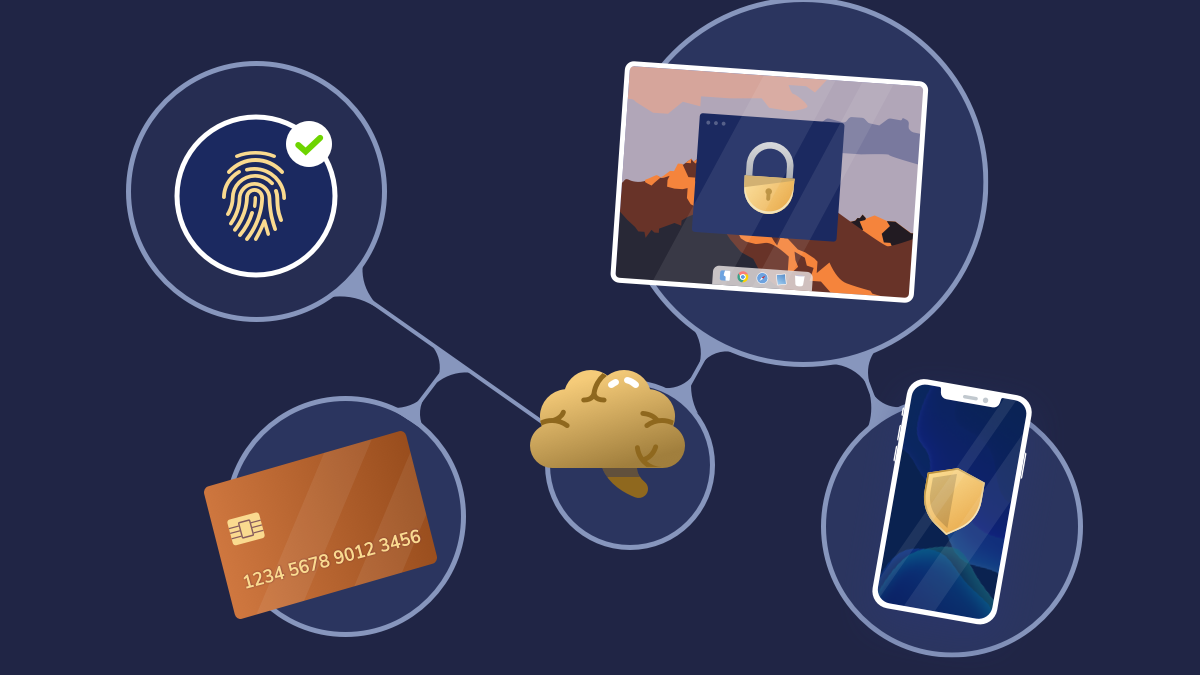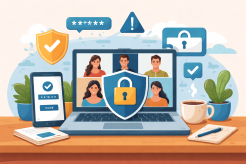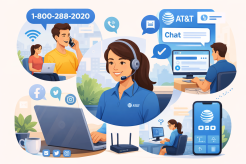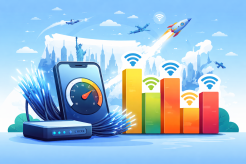Guide in Managing Your Identity and Protecting your Privacy Online

Are you concerned about how much of your personal information is stored on the internet and could be stolen or misused? You're not the only one who feels this way. The issue of online privacy is crucial.
There are, however, steps you can do to better manage and protect your financial and personal information when visiting your favorite social networking, news, and entertainment sites.
Related
What Not to Do And Internet Safety Tips To Protect You Online
Back-To-School Online Safety: 10 Tips For Parents
How to Protect Your Whole Family From The Internet This 2021
Here are some suggestions for improving your online privacy
Limit the amount of personal data you publish on social media.
Is there a sensible approach to assist preserve your online privacy? On social media, don't overshare. Giving too much information on social media sites like Facebook, Twitter, and Instagram may make it simpler for hackers to get identifying information, allowing them to steal your identity or access your financial information.
Could an identity thief, for example, use your Facebook account to find out what your high school mascot is or your mother's maiden name? This information is occasionally used to alter passwords on financial accounts as security questions.
Ignore the "About Me" areas in your social media profiles to protect your online anonymity. You do not need to disclose your birth year or location, which could make you a more attractive target for identity theft.
Also, experiment with various privacy settings. You might wish to limit who can see your postings to persons you've invited individually.
To prevent people from entering into your social media accounts in your name, create strong passwords for them as well. This requires at least 12 digits, special characters, and upper- and lower-case letters to be used.
In private mode, browse
Do your web surfing in private mode if you don't want your computer to save your browsing history, temporary internet files, or cookies.
This type of privacy protection is available through web browsers. It's known as Incognito Mode in Chrome. Firefox's privacy function is known as Private Browsing, while Internet Explorer's is known as InPrivate Browsing. Others won't be able to track your browsing history from your machine if you search with these options enabled.
These private modes, however, aren't entirely private. Your Internet Service Provider (ISP) can observe your surfing behavior even if you're searching in incognito or private mode. If you're searching on a corporate computer, your boss can see what you're looking for. You can be tracked by the websites you visit.
So, yeah, browsing incognito has some advantages. However, it is far from the only tool available to assist you in maintaining your online privacy.
Change your search engine.
If you're like most web users, you use Google as your primary search engine. You don't have to, though. People prefer anonymous search engines for a variety of reasons.
Your search history or clicks are not collected or shared by this sort of search engine. Ad trackers on the websites you visit can also be blocked by anonymous search engines.
Make use of a virtual private network (VPN).
A virtual private network (VPN) creates a private network from a public internet connection, giving you online privacy and anonymity. VPNs conceal your IP address, making your online activities almost untraceable.
When using public Wi-Fi at a library, coffee shop, or other public areas, a VPN is very vital. Cybercriminals will have a harder time breaching your online privacy and gaining access to your personal information if you use a VPN.
Be cautious about where you click.
Phishing attempts are one of the ways that hackers breach your online privacy. Scammers use phishing to deceive you into disclosing sensitive financial or personal information. Fake emails from banks, credit card companies, and other financial institutions are frequently used to accomplish this. These emails frequently instruct you to click a link and verify your financial details in order to prevent your account from being frozen or terminated.
Don't be taken in by these ruses. If you click on a phishing link, you may be led to a faked website that looks like a bank or financial institution's homepage. When you submit your account information, however, you will be sending it to phishing scammers.
Hover your cursor over suspicious links to see the destination URL before clicking. Don't click if it doesn't match the financial website you use.
Protect your mobile devices as well.
On our cellphones, many of us spend more time reading the web, responding to emails, and watching movies than we do on our laptops. As a result, it's critical that we put just as much work into safeguarding our online privacy on our phones and tablets as we do on our PCs.
To begin, ensure sure your phone is locked with a passcode. Entering a code every time you want to access your phone's home screen may seem inconvenient. However, if your phone is lost or stolen, this passcode may provide an additional layer of security. Make sure your passcode is difficult to guess. Don't use your birthday, address, or any other code that criminals might be able to decipher.
When downloading apps, be cautious. These games and productivity apps may include viruses that are harmful to your computer. Only purchase games from reputable retailers.
When using your mobile device to search the web or read emails, use the same caution you would when using your laptop or desktop computer.
Also, don't overlook software upgrades. Important defenses against the latest infections are frequently included in these upgrades.
Use a good antivirus program.
Finally, make sure you have antivirus software installed on all of your devices. This software can prevent hackers from taking control of your computer remotely, accessing your personal and financial information, and tracking your whereabouts.
As a defense against the latest malware, spyware, and other viruses, manufacturers regularly update their virus protection software. Install updates as soon as they're released, or set up automatic updates on all of your devices.
Related Posts
 Technology
Technology
15 Intriguing Facts About the Internet You’ll Love
15 intriguing facts about the internet, from submarine cables to data usage trends and speed insights that impact your daily connection.
 Safety
Safety
Always Check the Website You Visit
Learn how to check if a website is safe before entering personal information. Protect yourself from scams, phishing, and malicious websites.
 Safety
Safety
How to Secure Video Calls and Prevent Hacks
Learn how to secure video calls, prevent meeting hacks, enable MFA, protect accounts, and safeguard remote meetings with practical security best practices.
 Internet Bundles
Technology
Internet Bundles
Technology
Is AT&T Customer Service Good? Support Review
Is AT&T customer service good? Explore support options, phone numbers, live chat access, and real performance insights for residential and business users.
 Internet Bundles
Internet Bundles
Top Fiber Internet Providers in the U.S. Ranked by Speed
Discover the top fiber internet providers in the US, their speeds, pricing, and customer satisfaction ratings. Find the best plan for fast, reliable, and uninterrupted internet.